Garmin Varia RTL515 review: danger-sensing radar rear light serves up safer bike ride
Save over-the-shoulder checks – and possibly your life – with brainy rear bike light the Garmin Varia RTL515
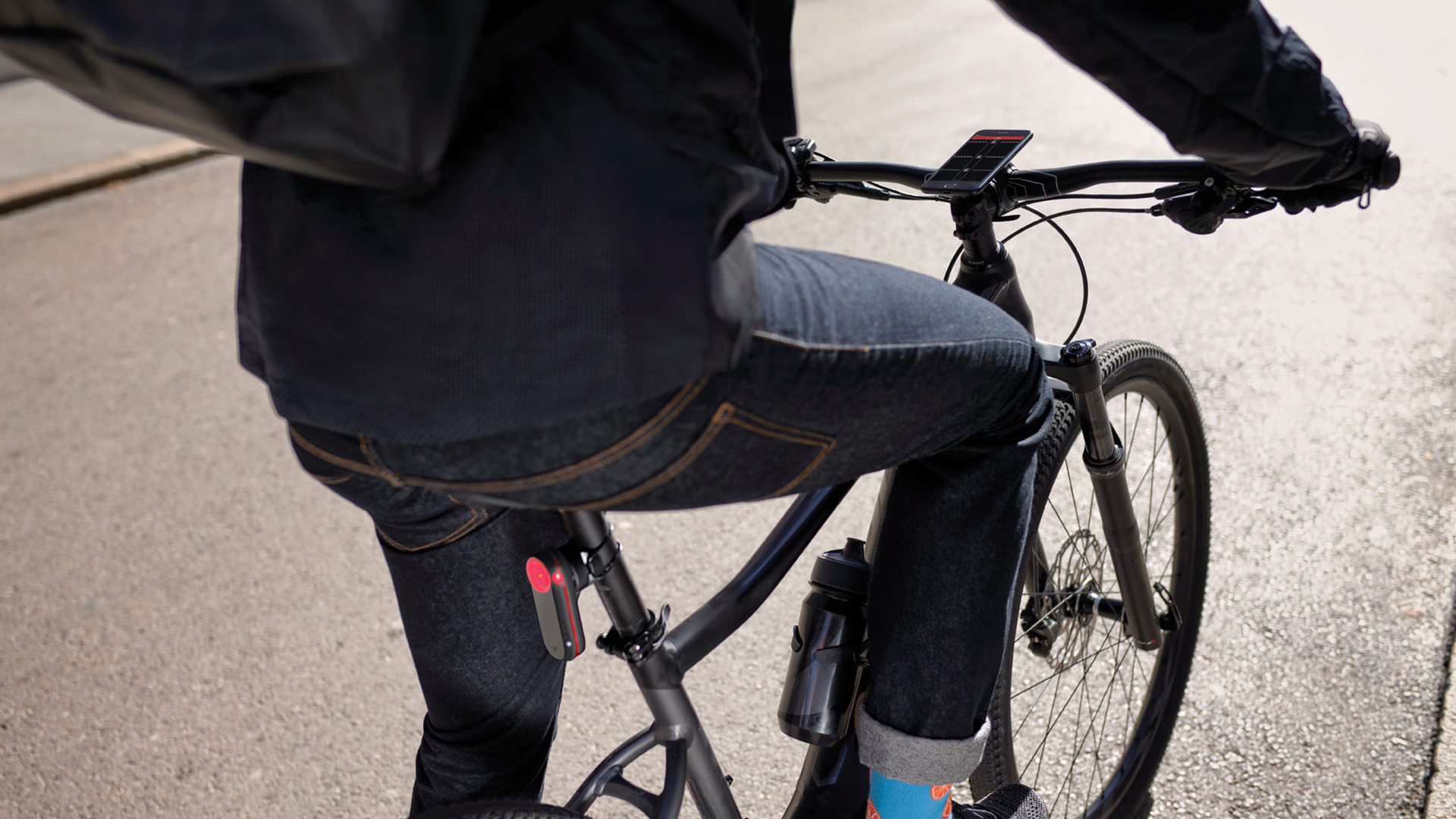
Garmin Varia RTL515 may not be the cheapest bike rear light out there, but this aft radar system adds value to any bike ride by constantly monitoring potentially dangerous traffic approaching your rear – an investment worth making
-
+
Adds extra safety to a ride
-
+
Light is plenty bright enough
-
+
Small and easy to remove
-
+
Works nicely with bike computers
-
+
Impressive battery life
-
-
Mounts are quite bulky
Why you can trust T3

Garmin Varia RTL515 in a pithy sentence: this rear bike light is expensive, but not as much so as hospital care and coffins.
Owning the best rear bike light you can find is a sensible choice for any cyclist. That's not only because it is a legal requirement in many countries during low light or nighttime rides but also because LED technology is now so good you can increase visibility during the day, too. After all, a big strobing red lamp is bound to grab the attention of the dozy driver, who is perhaps more involved in a podcast than the road ahead.
Garmin might be better known for its excellent array of bike computers, such as the Garmin Edge 1030 Plus that we ranked one of the finest we’ve tried in a while, as well as fitness trackers, smart watches and, erm, marine navigation, but they also have a cool - albeit limited - range of lights.
Its Varia range also includes a powerful 800-lumen front light that adjusts its output according to speed and the ambient light that’s detected by one of its compatible Edge bike computers (if you have one). But its rear-mounted sibling is arguably brainier still, as it packs a rearview radar that alerts you, the rider when traffic is approaching from behind.
Like many things Garmin, the Varia RTL515 works best when paired with a compatible Edge bike computer because you can take full advantage of both audio and visual indicators when traffic approaches. Garmin would also no doubt like it if you got a Garmin Varia UT800 for your handlebars – and admittedly, that is one of the best front bike lights available.
Please note: Garmin has since released the Varia RCT715, which added a camera to the mix. The unit costs over twice as much as the RTL515, so it's not easy to recommend over its predecessor. Read our full Garmin Varia RCT715 review to find out more.
Garmin Varia RTL515 review: Price and availability
The Garmin Varia RTL515 retails at £169.99 or $200 in the US or AUS$269 in Australia. So yes, it is a little expensive compared to most rear bike lights, but then it’s also a lot cleverer than most. It can also be bought direct from Garmin, as well as from the retailers in our much-loved pricing widgets.
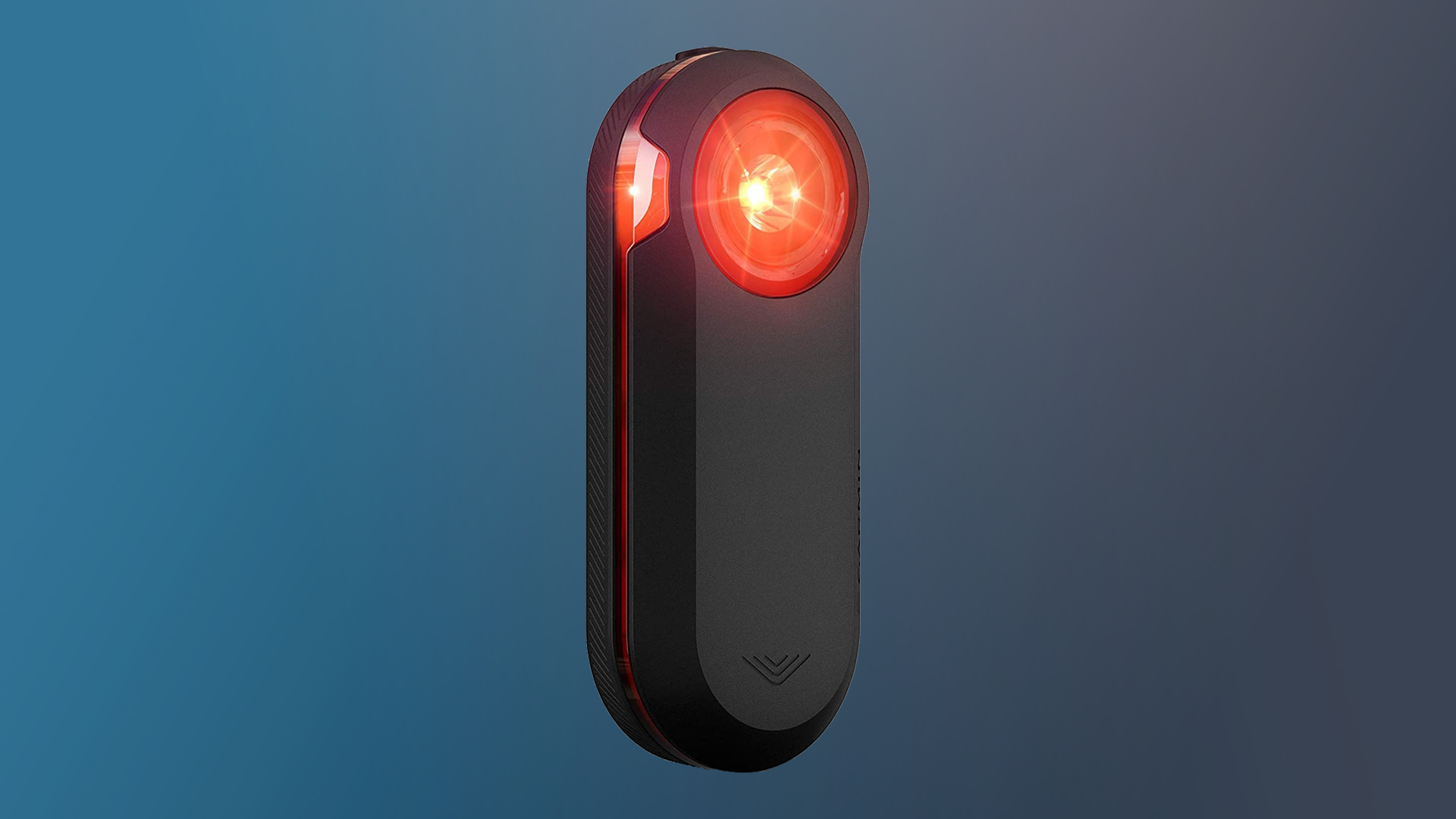
Garmin Varia RTL515 review: Design and build
Garmin has actually been making a version of its Varia rear radar for some years now and the first generation wasn’t pretty at all. In fact, it was a big rectangular slab of plastic with some very obvious LEDs built into it that would flash all angrily whenever a car approached from the rear.
Sure, the radar tech and the alerts on Edge computers were present and worked well, but it didn't do much for the svelte rear of a carbon road bike. Thankfully, the latest Varia RTL515 version is much sleeker and now and looks much neater when attached to pretty much anything thanks to a simple quarter-turn mount.
The unit itself weighs just 71g and measures a mere 100mm in length and around 40mm in width, with the powerful light integrated into the top of the casing. There’s also a simple one-button operation, while the light attaches to a seat post by an equally simple rubber mounts and tough elastic bands. That said, the mounts are quite chunky when compared to other Garmin products, but there are loads of aftermarket offerings should you need something more bespoke.
A plastic outer coating ensures it remains featherweight, yet it is also IPX7 water rated, ensuring that even rainy rides don’t dampen the lumens emitted.

Garmin Varia RTL515 review: Features
You could just the Garmin Varia RTL515 as a rear light, where its performance would be perfectly good enough for most, but it is designed to do much more than emit some lumens. It works best with the Garmin Edge ecosystem of cycling computers, where users will easily be able to pair the item from a pre-populated list of Ant+ items. But it also pairs to other cycling computers too and, in fact, one Varia can be used by several cyclists riding in pack, even if they favour something like a Wahoo or Lezyne.
Once set-up, it will offer a graphical overlay on the main screen on said cycling computer, which appears as a thin strip down either the left or right. Approaching traffic from the rear is represented as a dot and the computer will vibrate and emit a sound to alert you when it first detects a car, as it gets closer and one final beep when it clears.
The vehicles are tracked as they get closer and further warnings are emitted if they are travelling at speed. Unlike older variants, you also receive a nice colour coded warning on the screen for particularly fast approaching cars or those that are following in close proximity.
I say cars, but it will track anything approaching from the rear, so long as it is travelling at a faster speed than you are currently cycling. That could be someone on a motorcycle or just another rapid cyclist, either way, you get an alert.
For those who don’t use Garmin Edge cycling computers, there is a Varia smartphone app, which is basic but does the job by displaying a screen and visualising the approaching traffic via a simple vertical timeline. It also plays nicely with a bunch of third party GPS routing apps, so you can get a visual overlay while using those.
The light itself has several modes, which include daytime flashing and brighter nighttime settings, while a new ‘Peloton” mode essentially flashes with slightly less vigour, so as not to blind any of your cycling companions.
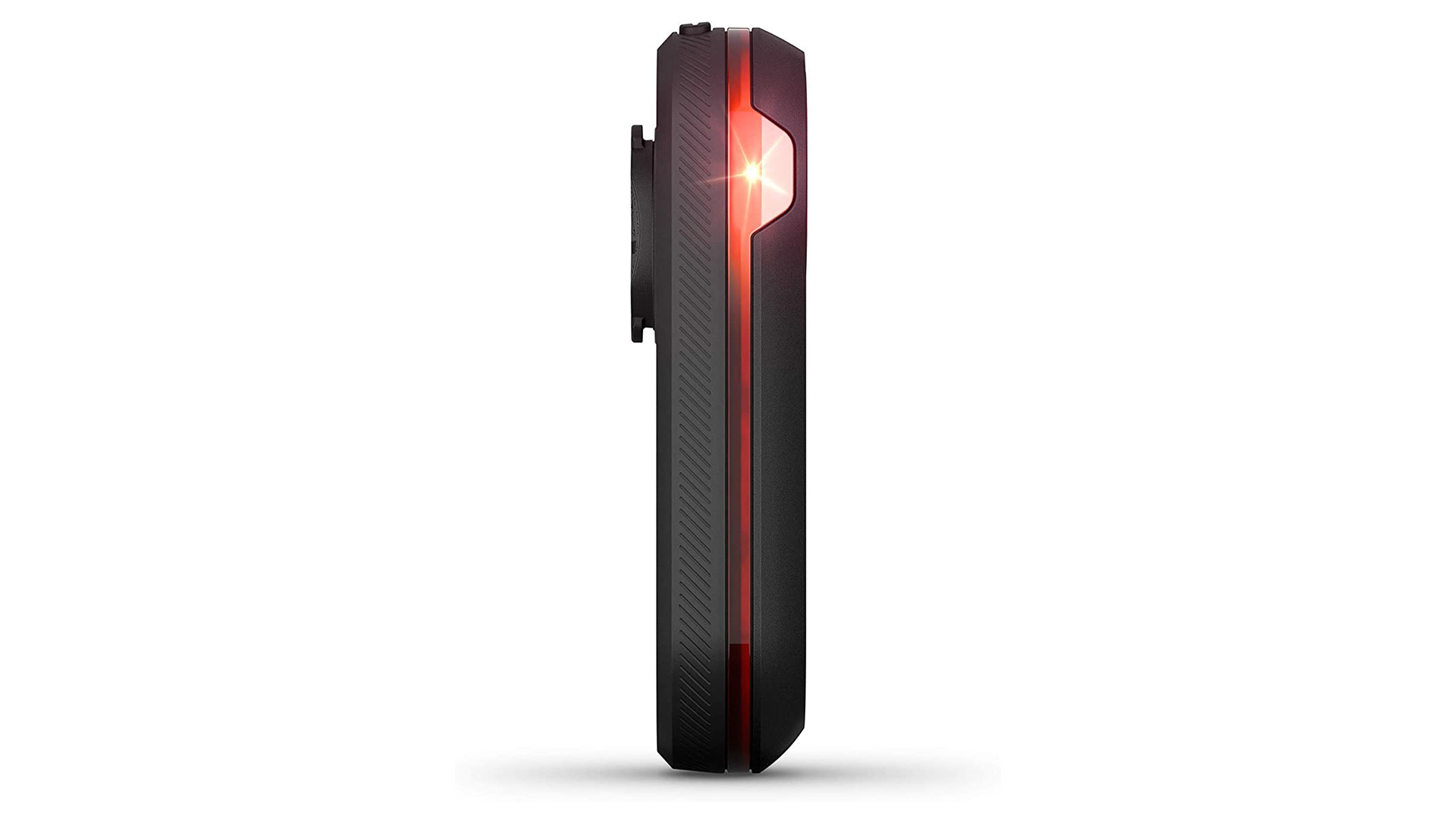
Garmin Varia RTL515 review: Performance
It’s easy to approach the Varia RTL515 with a healthy dose of skepticism, but it doesn’t take many miles in the saddle to realise it’s actually a very handy tool. Granted, it gets a bit busy when using it in heavily congested cities, as the weight of notifications can be a bit overwhelming.
But when out on a longer ride, travelling on country lanes and less frequented cycling beauty spots, it really comes into its own. Here, faster cars can easily catch riders out and accidents occur when cyclists change direction without checking or signalling, or when motorists simply fail to spot them.
Garmin’s tech makes it very obvious when a car is approaching and gives plenty of warning so you can track its movement. If the car is particularly fast, the Garmin sounds a harsh alert, which pretty much forces you to visually check and perhaps think about taking some evasive action. Similarly, if you spot a larger build up in traffic on a steep climb it might mean you decide to pull over and let it all past, so you can get on with the ride without the stress.
The light itself isn’t the most powerful on sale but the brightest 65 lumen day flash mode is definitely eye catching enough. Garmin claims cars can see it from up to a mile away, which I can’t confirm, but I will say it’s bright enough to hurt the eyes if you look directly at it.
Battery life is also vastly improved over outgoing models, with up to 16 hours in day flash mode and 6 hours in solid mode, while charging is fairly rapid via the provided micro-USB cable.
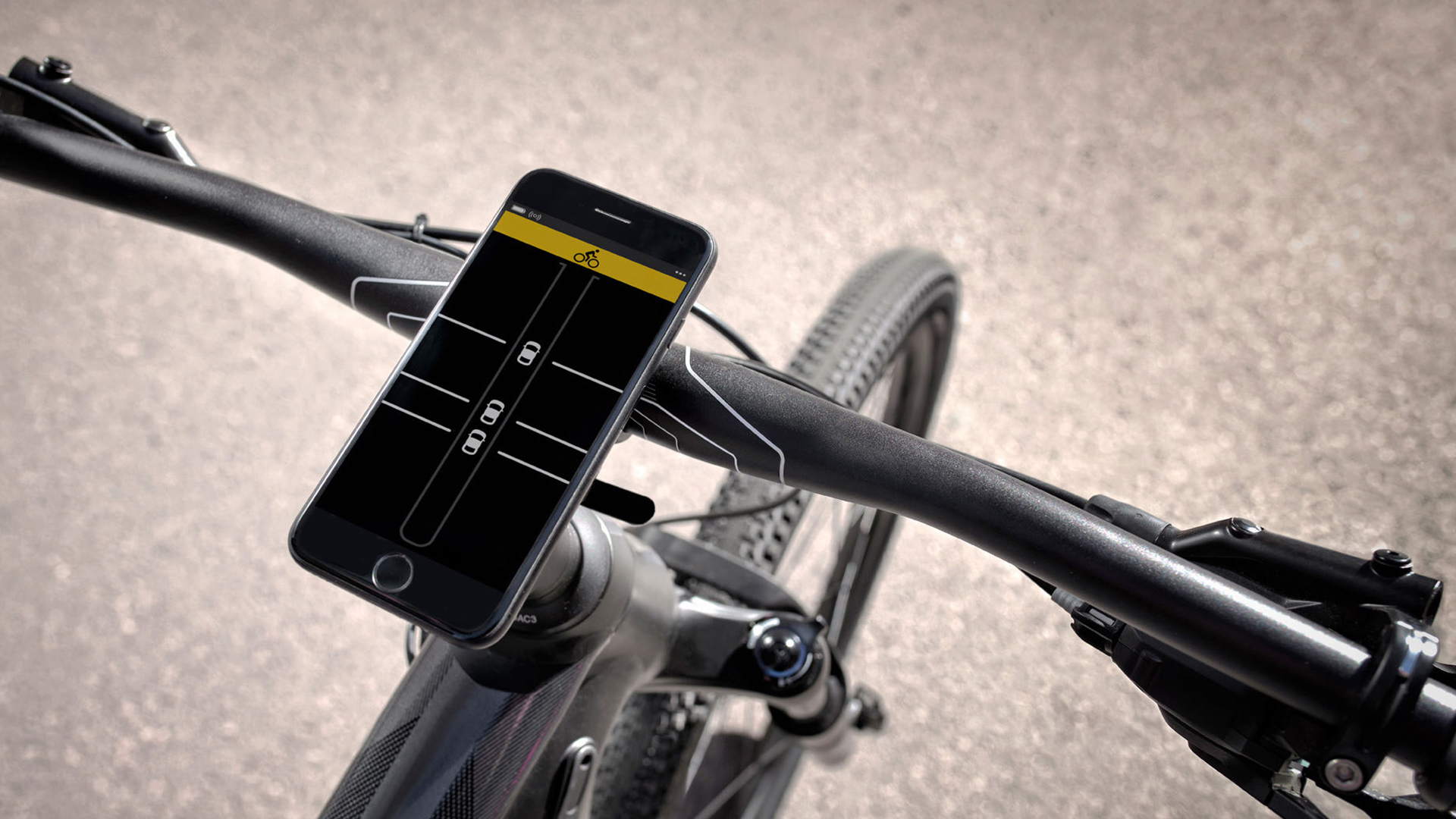
Garmin Varia RTL515 review: Verdict
Yes, it’s an expensive rear light, but the Garmin Varia RTL515 quickly becomes a permanent fixture on any regular cyclist’s seat post, purely because it offers an extra element of safety and peace of mind. Even if it doesn’t directly save your life, it at least makes life in the saddle a little more comfortable, as it provides a nice early indication of rapidly approaching vehicles, rather than leaving it to the shock of one passing unannounced.
Cleverly, Garmin kept the dancing light tech of its original (fugly) unit, so fellow road users get a notification via a flash when they get within around 30m of the back of your bike. If they hadn’t seen you before, they will now, and some might even give a little more room when passing as a result.
Garmin Varia RTL515 review: Also consider
The Tooo Cycling DVR80 is cheaper than the RTL515 and combines an 80-lumen rear light with a full HD action camera, keeping you safe and seen during rides while also recording what’s going on behind you – crucial when you need evidence of close passes or in the worst-case scenario of an accident. Compare this with the Varia RTL5151's 65-lumen max output and radar-only mode. Read our full Tooo Cycling DVR80 review.
Not the cheapest bike light/camera combo but probably the most versatile, the Apeman Seeker R1 has a full-fledged removable action camera and an app which allows you to continuously monitor the situation behind you. It's a fun but chunky bike accessory. Read our full Apeman Seeker R1 review.
Sign up to the T3 newsletter for smarter living straight to your inbox
Get all the latest news, reviews, deals and buying guides on gorgeous tech, home and active products from the T3 experts
Leon has been writing about automotive and consumer tech for longer than he cares to divulge. When he’s not testing the latest fitness wearable and action camera, he’s out in a shed fawning over his motorcycles or trying not to kill himself on a mountain bike/surfboard/other extreme thing. He's also a man who knows his tools, and he's provided much of T3's drills coverage over the years, all without injuring himself.
-
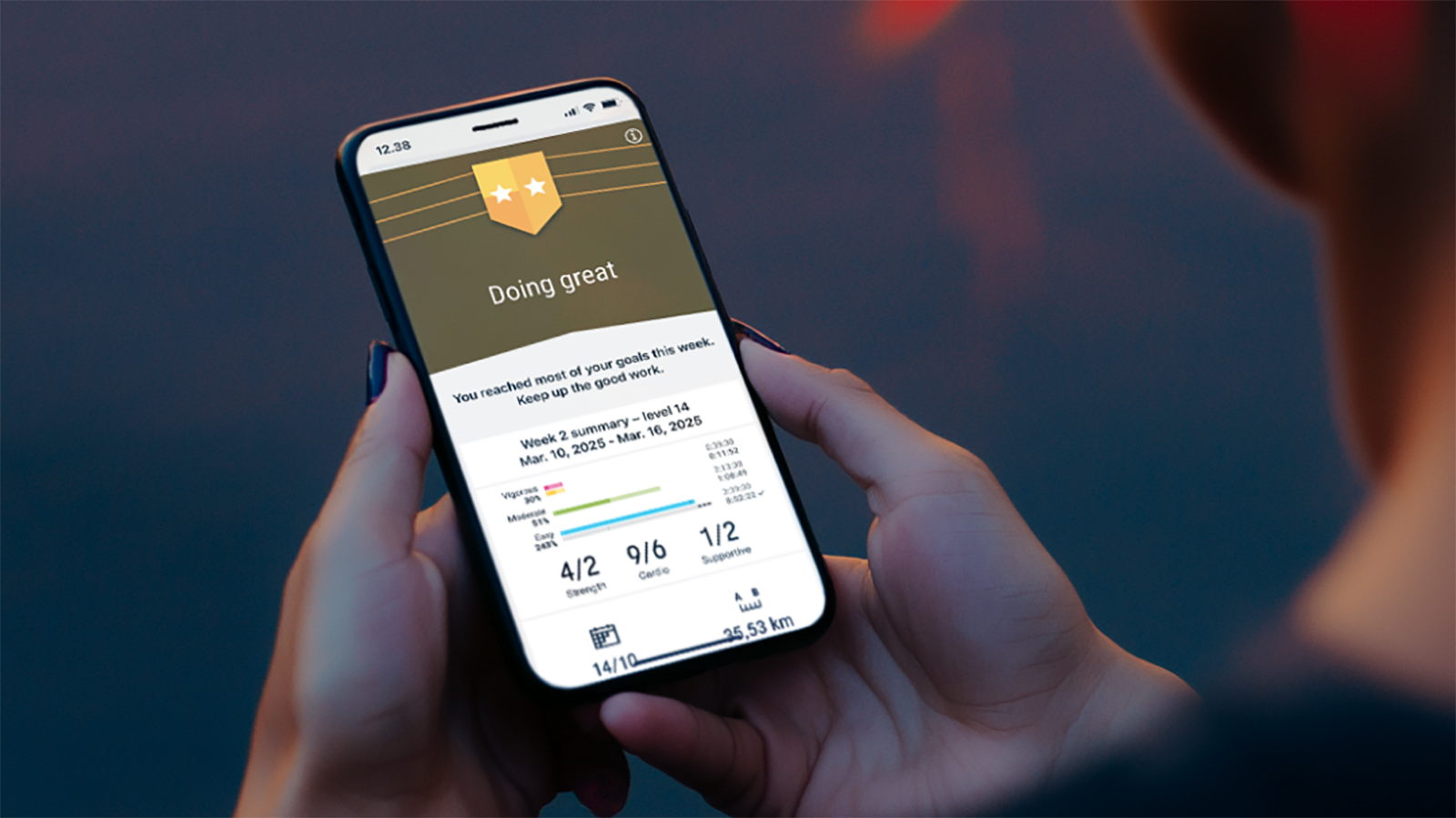 Polar’s new subscription feature lands in the shadow of Garmin’s Connect+ rollout
Polar’s new subscription feature lands in the shadow of Garmin’s Connect+ rolloutPR genius or timing disaster? Polar’s new Fitness Programme adds adaptive training to its ecosystem
By Matt Kollat Published
-
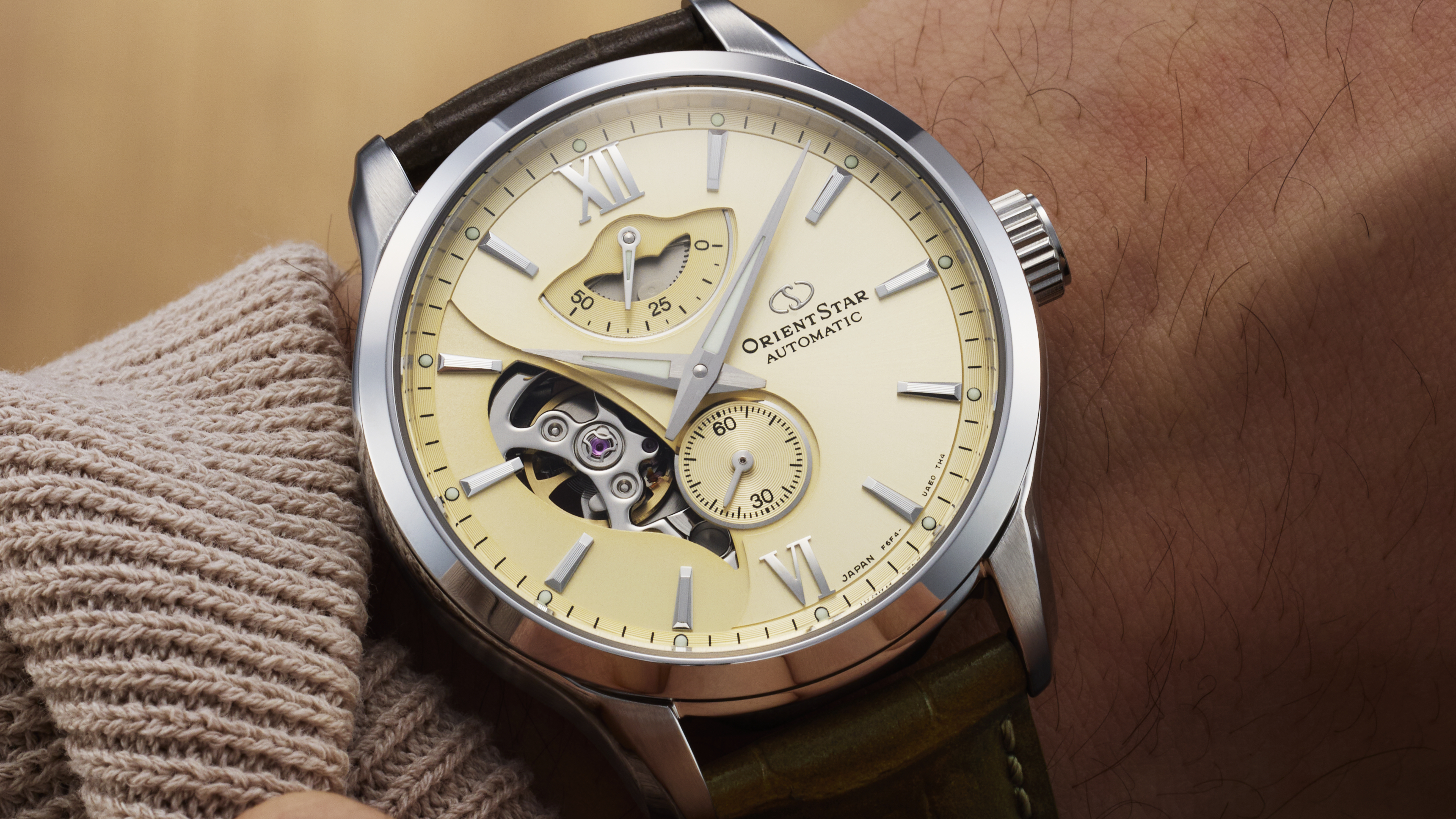 New Orient Star watches offer a glimpse of the magic within
New Orient Star watches offer a glimpse of the magic withinThere are two new skeleton pieces
By Sam Cross Published
-
 Netflix's most surprising 100%-rated sci-fi series returns with gorgeous trailer
Netflix's most surprising 100%-rated sci-fi series returns with gorgeous trailerLove Death + Robots is back for more
By Max Freeman-Mills Published